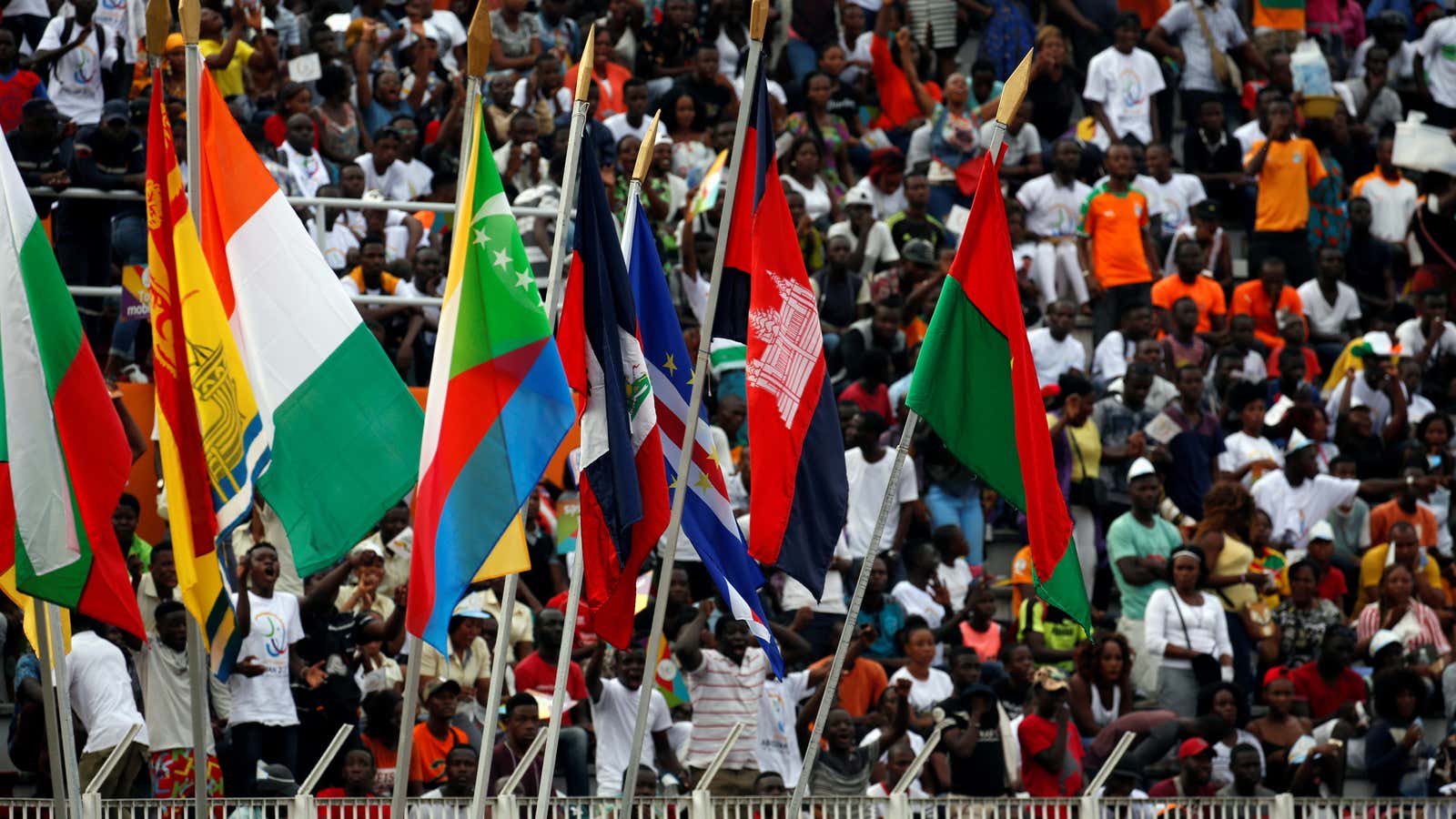Startups operating in Africa have been subject of global hype and investment over the past decade—but much of it has been skewed particularly towards Anglophone Africa.
It’s a reality that’s reflected in several trends: Annual reports on startup funding in Africa typically show South Africa, Kenya and Nigeria are the top investment destinations. South Africa and Nigeria are also home to the continent’s three most valuable tech ecosystems.
But the funding gap between Anglophone and Francophone Africa is best captured by this stat: Amid a record-breaking year for the continent as a whole, startup funding in Francophone Africa actually dipped in 2018, according to Partech Ventures’ report on startup funding in Africa.
That reality also mirrors a correlation between national economies and investor interest with a majority of Francophone nations largely home to smaller economies and markets. The 120 million population across 15 Francophone West and Central African countries is dwarfed by Nigeria’s alone. Only Senegal and Côte d’Ivoire are regularly ranked among fast growing African economies—though this year Benin and Guinea are among the ten fastest-growing countries.
Rebecca Enonchong, an entrepreneur and chair of Afrilabs, a network of African tech hubs, says some of the disparity in funding is rooted in cultural differences as obvious and simple as language. “Most tech publications are in English. They would be unlikely to read press releases in French,” she says. But beyond language, Enonchong, a Cameroon-born tech entrepreneur, says there’s further potential for a culture clash.
“Francophone startups tend to be more formal and long-winded and few journalists or investors have the patience to read through tons of pages of detailed documents to explain a solution,” she says. “This formalism is sought in Francophone educational systems as evidence of knowledge and expertise. So founders tend to replicate this in their communications to investors and journalists.” As a consequence of several factors, “Francophone startups generally don’t have access to the same networks that those in Anglophone Africa do,” she admits.
Tidjane Dème, general partner at Partech Africa, a pan-African $140 million fund, agrees the “language barrier, among other factors, limits the ability of investors to access information and engage in these markets.”
But the Senegal-born investor says the funding disparity should be discussed as a broader issue beyond Francophone countries. “We must point out that there is actually a much larger issue with only three markets (Nigeria, Kenya, South Africa) attracting 77% of investment,” he tells Quartz Africa. “It’s really about three very visible markets getting most of the attention and everybody else sharing in left-overs. So what goes on in Cameroon and Ivory Coast currently applies to Uganda and Ghana.”
However, one flaw with that argument is that unlike in Francophone Africa, there was an uptick in investor interest in other countries aside from the three major startup markets last year. As Partech Africa’s report notes, while investor interest in Francophone slowed in 2018, investment across the rest of the continent grew “as fast as the top three markets” with 10 start-ups raising 11 rounds equal to or higher than $5 million outside Kenya, South Africa and Nigeria.
Stepping up
With Francophone Africa-based startups lacking in access to funding, local angel investors are increasingly stepping in to shore up the deficit. The Dakar Network Angels has freshly launched operations (and already made its first investment in an Ivorian startup) with a goal of making at least four investments in Francophone Africa-based startups every year. Similar angel investment groups have also been launched in Benin Republic and Togo as they look to match their more established counterparts like the Lagos Angel Network—the most active in Africa.
In smaller Francophone markets where startups might otherwise be overlooked, the sprouting angel networks fill an important gap in the startup investment cycle as they can offer founders seed stage funding to prove their potential for growth and then possibly attract bigger investors.
Some institutional investors are also spotting a broad economic opportunity in the funding gap even beyond startups specifically. Last month, the African Development Bank (AfDB) approved a $14 million equity investment in Adiwale Fund 1, a private equity fund that targets high-growth SMEs in Francophone West Africa. The fund (with a target size of $84.5 million) will invest in businesses across consumer and business services as well as manufacturing in countries “currently under-served” by the global private equity market, AfDB says.
Enonchong says there’s also an increasing number of venture capital firms taking a closer look at Francophone Africa-based startups. ”Even though they don’t exclusively invest in these Francophone startups, at least they can more easily communicate with them and see the value,” she says.
One of the most prominent firms in that bracket is Partech Africa which launched its fund at the start of last year with a promise of increased focus on Francophone Africa. So far however, the Dakar-headquartered firm’s three confirmed deals have been investments in Nigeria and South Africa-based startups.
Dème however claims that trend will change. “We are certainly more exposed to this region than many investment teams. This is already reflected in our deal flow today and we are looking forward to closing deals in the region,” he tells Quartz Africa. “We are just beginning to build our portfolio and it will surely look very different eventually.”
Sign up to the Quartz Africa Weekly Brief here for news and analysis on African business, tech and innovation in your inbox
